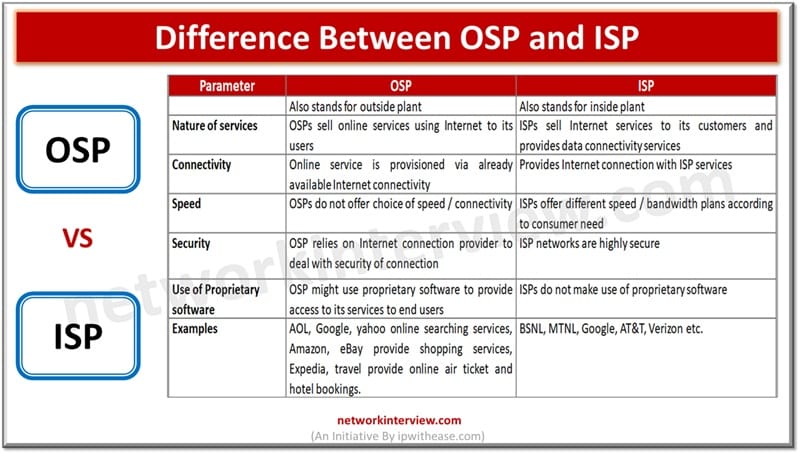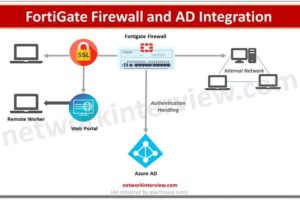
OSP vs ISP: What is the difference between OSP and ISP?
An ISP provides the physical and network access needed to connect users to the internet. Whereas, an OSP offers internet-based services like email, cloud storage, or social media platforms.
Service providers play a major role in providing different kinds of IT services related to Internet, web, applications, email, advertising, cloud, Security etc. Different service providers provide a variety of services to its clients. For example, an ISP (Internet service provider) sells internet services or data connectivity to its users. OSPs (Online service providers) on the other hand sell online services via the Internet to users such as email, advertising etc.
Today we look more in detail about the basics of OSP (Online service provider) and ISP (Internet service provider), commonalities and key differences between both of them.
What is OSP
OSP or Online service provider as they called provide more than just basic Internet service when already connected to Internet. They provide extensive unique web services, email services, advertising services and so on. Services coming from OSPs require ISPs support. OSPs provide its customers with online services like email, websites, discussion forums, downloading files, news articles and chat rooms. The services either provide web access to specialized databases or added general purpose Internet access.
In addition to providing Internet access, OSPs also provide software packages, email accounts and some personal web space. The OSPs make it easy to communicate with others at every corner of the world, work from home by online services using video telephones and shop sitting at home using online shopping websites. OSPs help organizations to save costs by building and maintaining their websites, building databases, collecting and storing large amounts of information, sharing and data exchange with partners and customers, speeding up operations etc.
Related: ISP vs VPN
What is ISP
An ISP or Internet service provider as they call it provides Internet and other related services to various enterprises and users. It has a telecommunication network and its associated equipment to offer services across geographies and regions. ISPs provide Internet to its clients along with email, web hosting and domain registration services. ISPs provide Internet connections such as cable, fiber, high speed broadband services. ISPs are connected to a single or more than one high speed leased line which enables them to provide services to its customers. Servers are also maintained by ISPs in their data centers to control all customer traffic.
ISPs are grouped into three tiers namely –
- Tier 1 ISP which manages most of the traffic on its own as they have physical network lines and have maximum geo reachability. They negotiate other Tier 1 networks to pass traffic through other Tier 1 providers and provide access to tier 2 ISPs.
- Tier 2 ISP connects tier 1 and tier 3 ISPs. They possess regional and national boundaries. Access is procured from tier 1 ISPs but teams up with tier 2 ISPs. Majority of commercial and consumer customers belong to them
- Tier 3 ISPs connect customers to the Internet via other ISP networks. They consume higher tier ISP services which are paid and work to provide Internet to local consumer markets and enterprises.
Comparison: OSP vs ISP
| Parameter | OSP | ISP |
| Also stands for outside plant | Also stands for inside plant | |
| Nature of services | OSPs sell online services using Internet to its users | ISPs sell Internet services to its customers and provides data connectivity services |
| Connectivity | Online service is provisioned via already available Internet connectivity | Provides Internet connection with ISP services |
| Speed | OSPs do not offer choice of speed / connectivity | ISPs offer different speed / bandwidth plans according to consumer need |
| Security | OSP relies on Internet connection provider to deal with security of connection | ISP networks are highly secure |
| Use of Proprietary software | OSP might use proprietary software to provide access to its services to end users | ISPs do not make use of proprietary software |
| Examples | AOL, Google, yahoo online searching services, Amazon, eBay provide shopping services, Expedia, travel provide online air ticket and hotel bookings. | BSNL, MTNL, Google, AT&T, Verizon etc. |
Download the comparison table: OSP vs ISP
Tag:services



